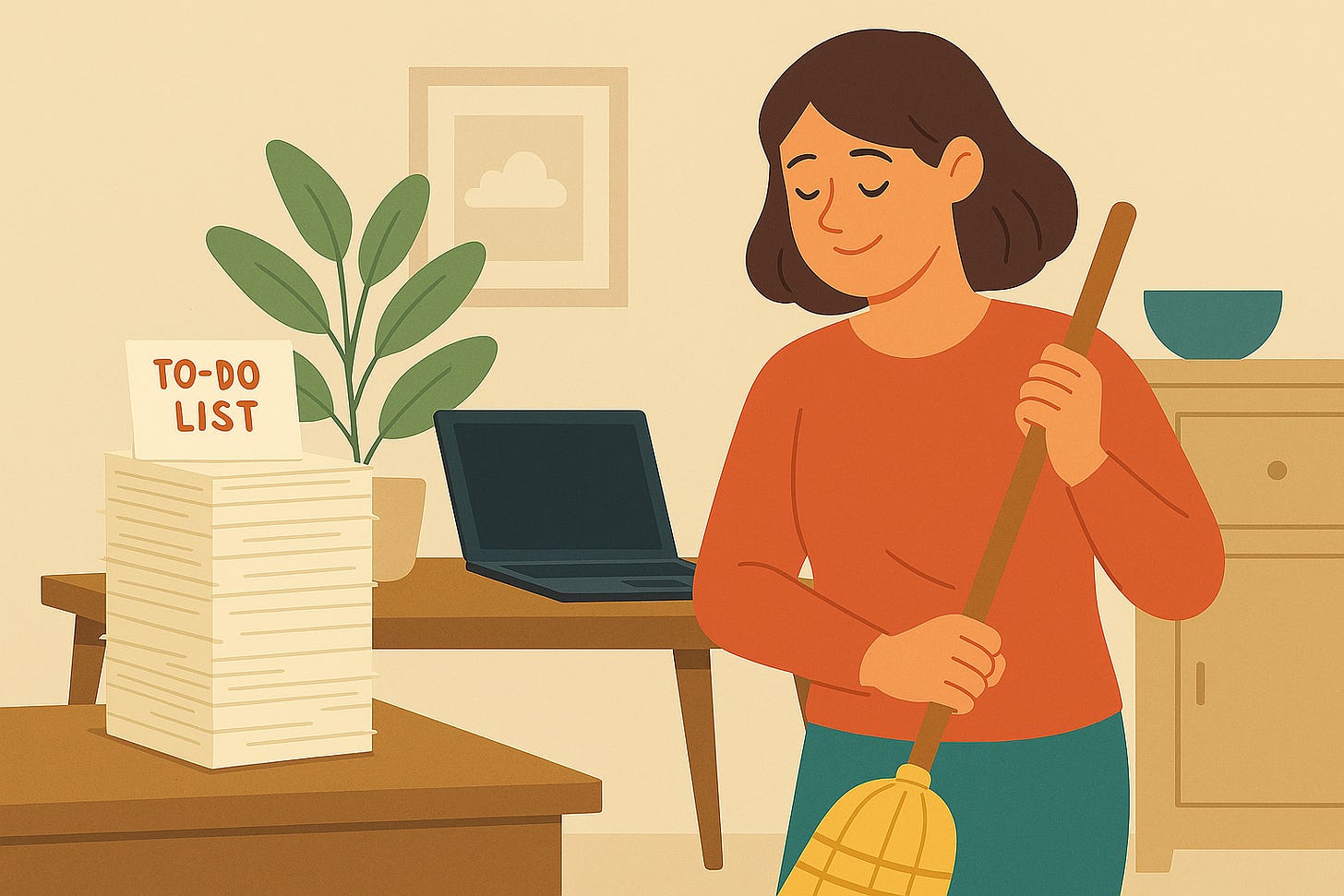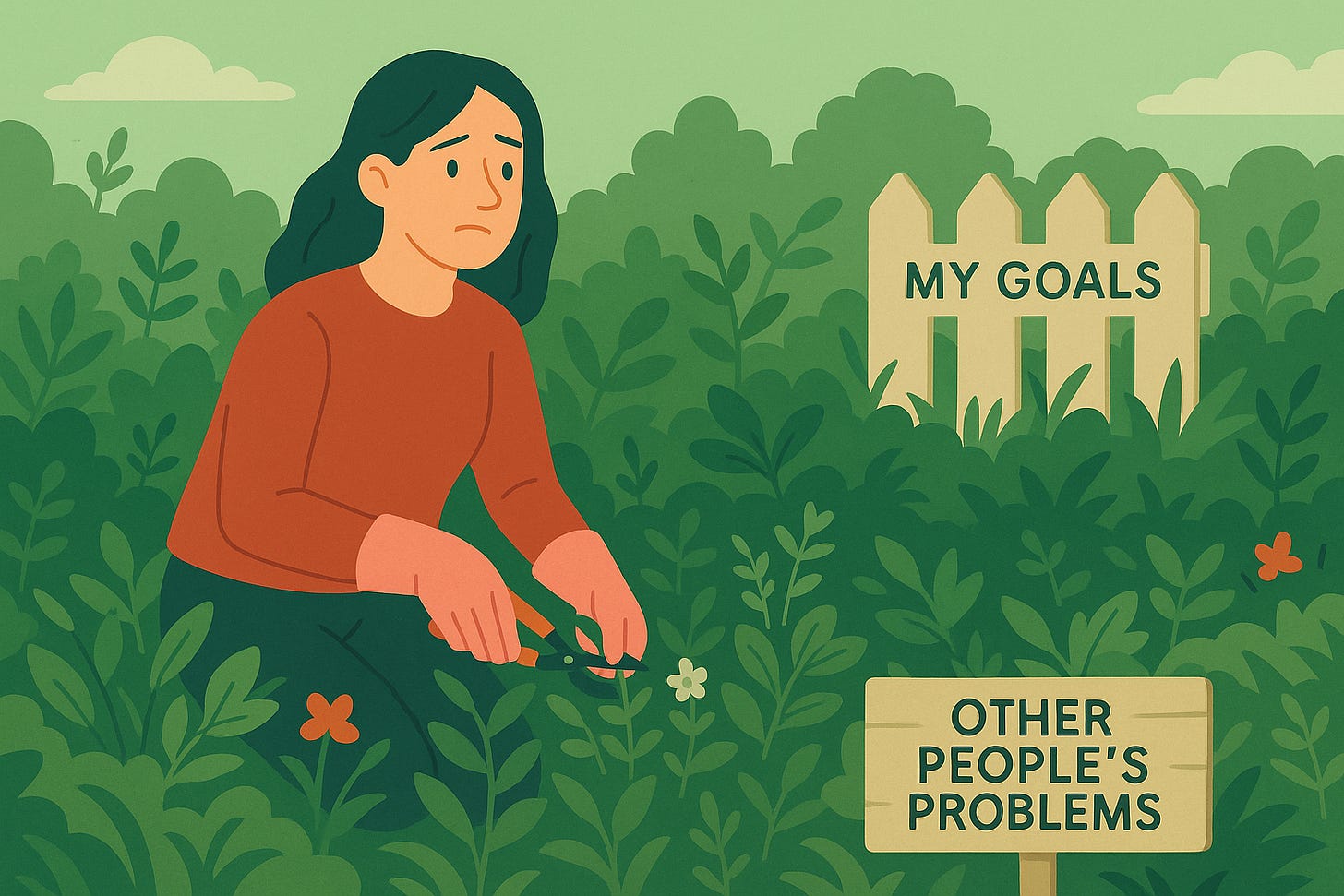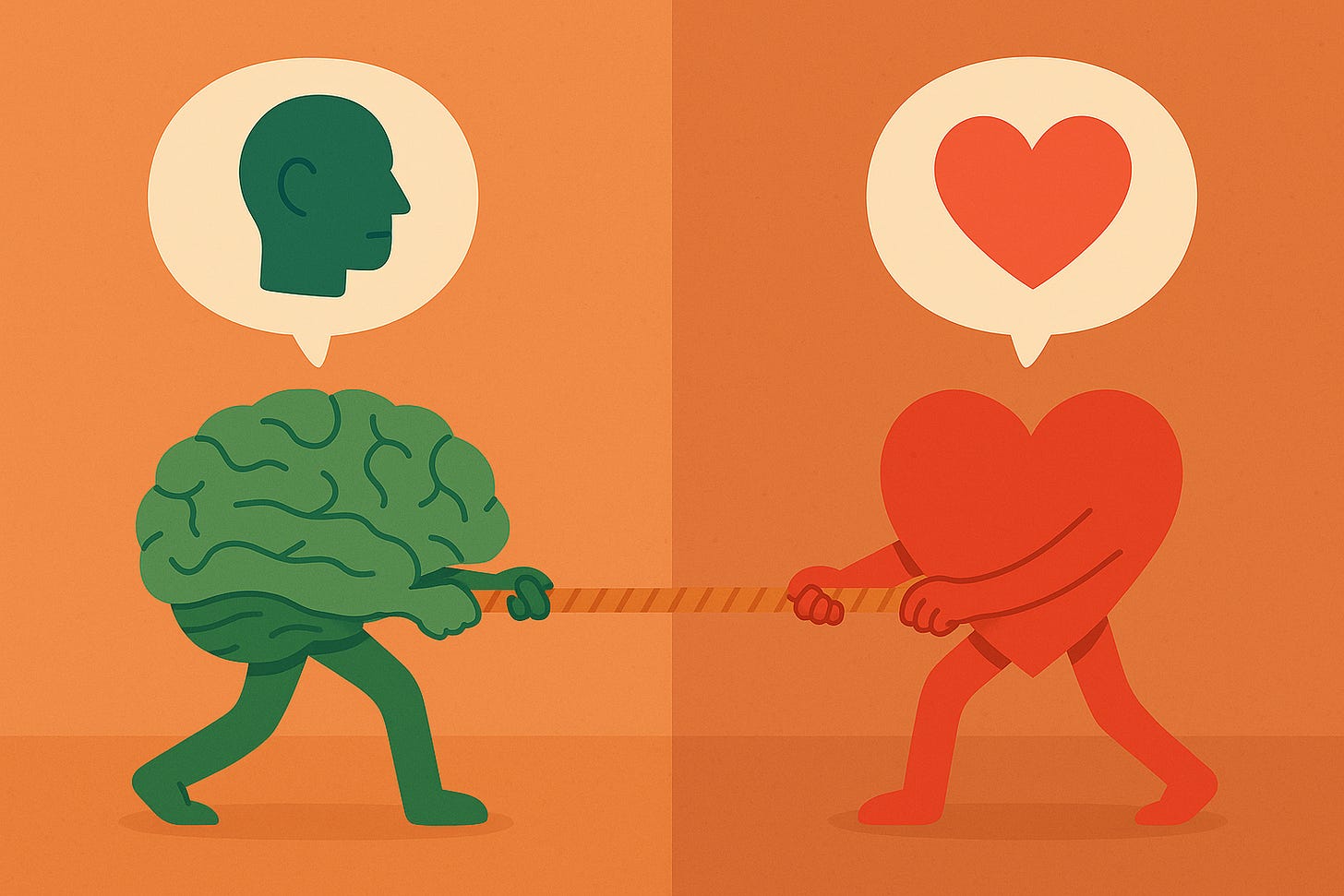Virtuous Procrastination
When ‘doing good’ becomes an avoidance tactic.
Last week, I talked about the quiet cost of ‘things are fine’ – when we let our desire for comfort lull us into inaction.
Today, I want to explore a similar thread. I call it “virtuous procrastination.”
Virtuous procrastination is the act of avoiding discomfort, uncertainty, or purposeful risk by busying yourself with work that appears responsible, generous, or admirable.
This came up with a client – we’ll call her Julie – who was telling me about her new volunteer work at a food pantry.
“Oh wow, that’s very kind of you,” I said, “a very generous way to spend your time.”
But as we’re talking, Julie said, “I think I’m volunteering right now so I don’t have to work on my business.”
That was great awareness on her part – she recognized her avoidance tendencies were at play, and keeping her stuck and stressed.
Virtuous procrastination is the sneakiest type of avoidance because it doesn’t look like avoidance. You’re not binge-watching or doomscrolling. You’re helping. You’re contributing. You’re doing good in the world, damn it!
Doing good is important – being useful, being of service, giving back. That’s part of what it means to be a decent human being.
But it’s also important to recognize when “doing good” has become a way to avoid doing the thing that matters most.
When virtue becomes an avoidance tactic
What looks like selflessness, diligence, or leadership can become an excuse to ignore (what you say are) your priorities – especially the life-changing things, like buying a house, changing careers, or moving countries.
Lately, I’ve been hearing from more people who say they want to start a business. They’re sick of company layoffs and change transformations, or are tired of their role, and want something new.
Take Amelia. She’s a corporate professional who’s been talking about starting a side hustle for over a year, but says she’s too overstretched to make space for it – even though it’s one of her top priorities.
She says yes to every project and wants to be seen as someone who can handle it all. From the outside, she looks ambitious and helpful – and she is – but her actions are classic virtuous procrastination.
Her real goal is to go out on her own. But her desire for praise keeps her tethered to her job. This external motivation distracts her from the internal discomfort or uncertainty around building something of her own.
She says she values autonomy, creativity, and impact, but her actions don’t reflect that. She overcommits, struggles to let go when things aren’t working, and fills her calendar with tasks that make her feel needed, but not fulfilled. She gets pulled into other people’s urgencies and tells herself she’s too busy to focus on her dream.
Other flavors of avoidance
Maybe you’re more like Helen, who over-prepares for meetings to the point of panic – memorizing scripts, and trying to anticipate every question. From the outside, it looks like diligence or being proactive. But underneath, it’s fear, not virtue, that drives her.
Or maybe you’ve pulled a Pam, who skips her friend’s party because she “has to watch the kids” – even though the party’s been on the calendar for months and she could’ve found a sitter. Pam just didn’t feel like going, but instead of stepping up, she made herself feel better by saying staying home was the responsible choice.
Each of these behaviors can be rationalized as “the right thing to do,” which can feel better, in the short-term, than guilt, uncertainty, or discomfort.
How to shift out of virtuous procrastination
Virtuous procrastination feels productive. Praiseworthy. It keeps you in motion – but not in the direction you want to go.
So how can you tell when something virtuous is really avoidance?
Try this three-step check in:
Start with a pause. If you default to saying yes, build in space before committing. Ask: Why do I want to do this? How does this move me closer to my – or our – goals?
Understand your motivation. Ask: Is this something I genuinely want – or something I feel I should do? Would I be saying yes to avoid certain emotions or situations, like guilt or conflict?
Get clear on your priorities. Every task takes time, energy, and attention. Ask: If I take this on, what will I have to say no to? What’s most important right now?
Reconnect with what matters most
Sometimes we use virtue to procrastinate our own growth. Sometimes we use it to avoid discomfort in relationships – dodging conflict, skipping commitments, telling ourselves we’re being responsible when really, we’re just choosing what feels better in the moment.
Over-preparing, overcommitting, over-helping – these are all ways we try to control outcomes. But if your “good” behavior isn’t aligned with what matters most, it’s not virtue. It’s avoidance.
Just because something is noble or interesting doesn’t mean it’s right for you right now. And even if it is, it might not need your full capacity.
If you’re performing generosity while quietly resenting how little time you have for your own goals, that’s not aligned action. That’s focusing on what looks good instead of doing what is good.
Ask yourself: Am I doing this because it aligns with my values – or because it helps me avoid discomfort?
Clarity comes from making time to be honest with yourself. Courage comes from acting on it.
You don’t need to stop being good. You just need to stop hiding behind it.
Xo Sarah, communication & mindset coach
Ready to stop procrastinating on what matters most to you? Let’s talk.






